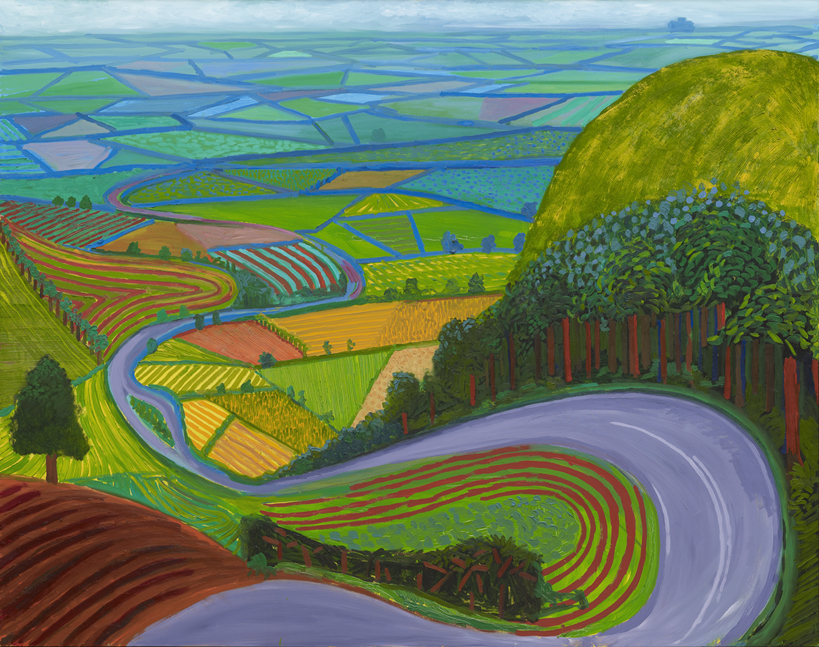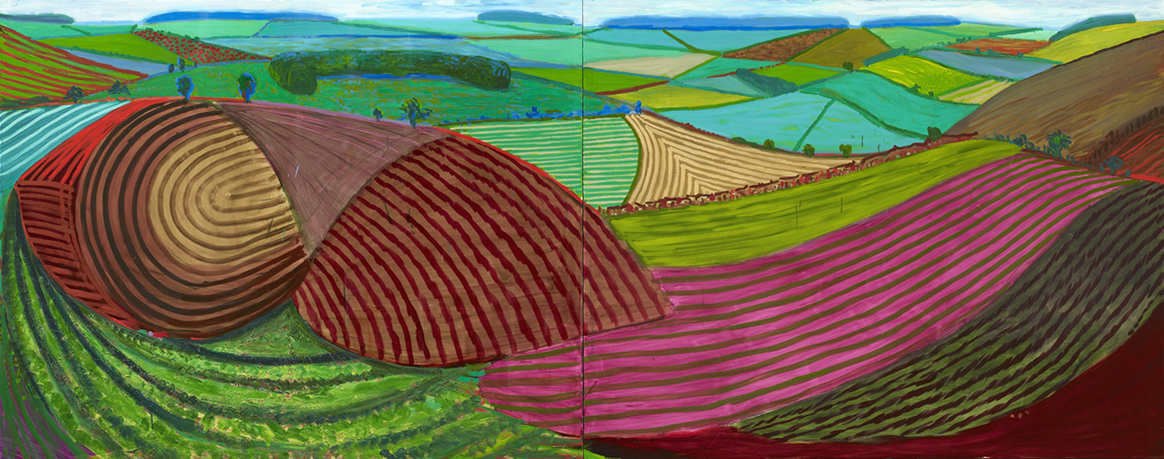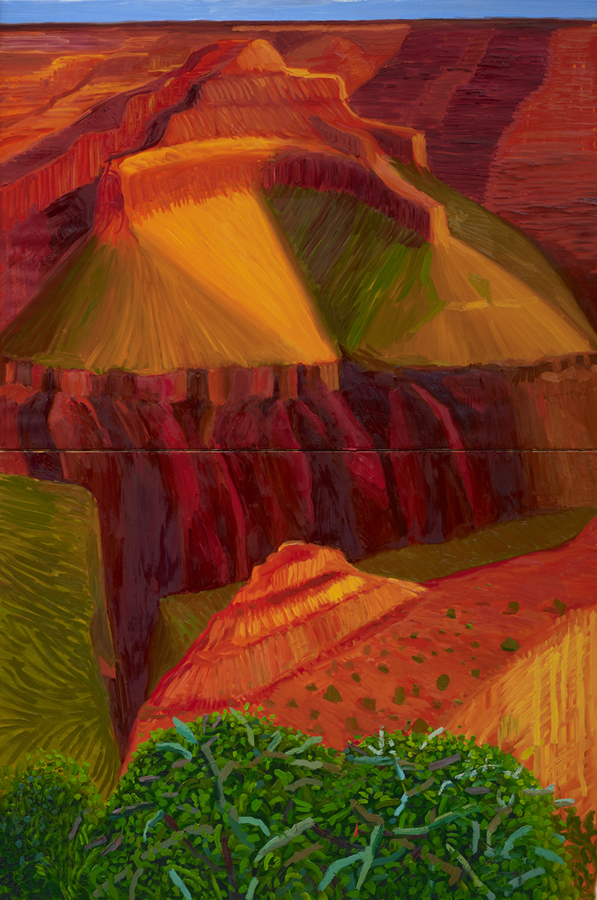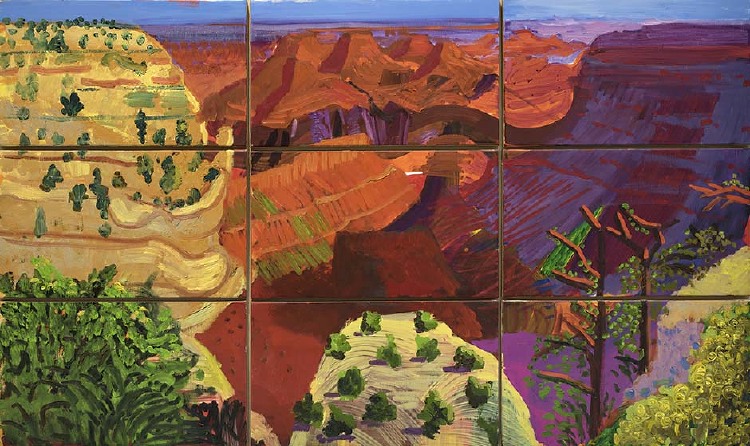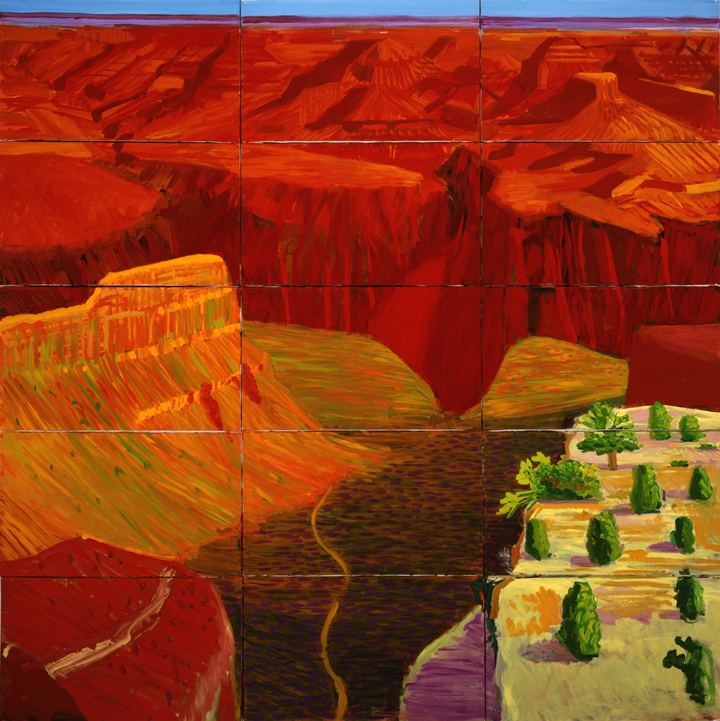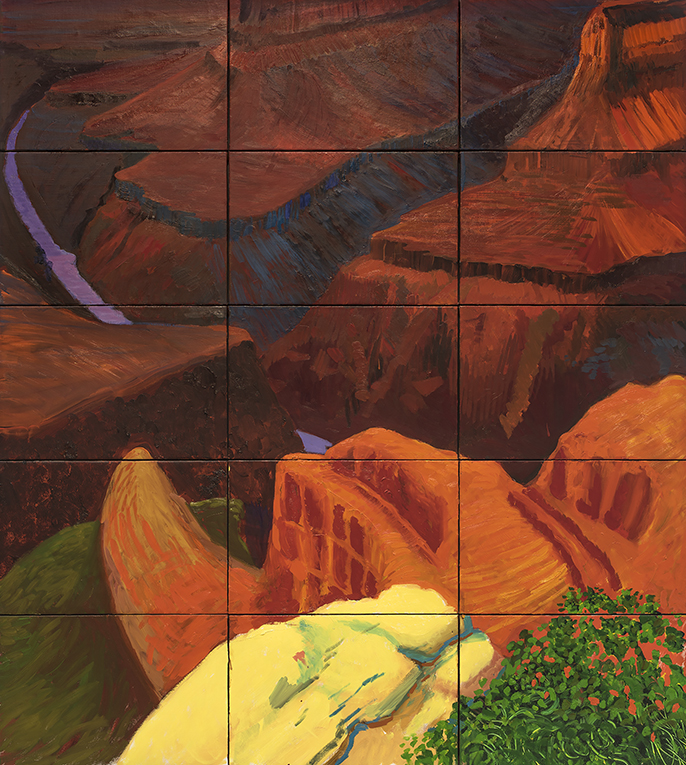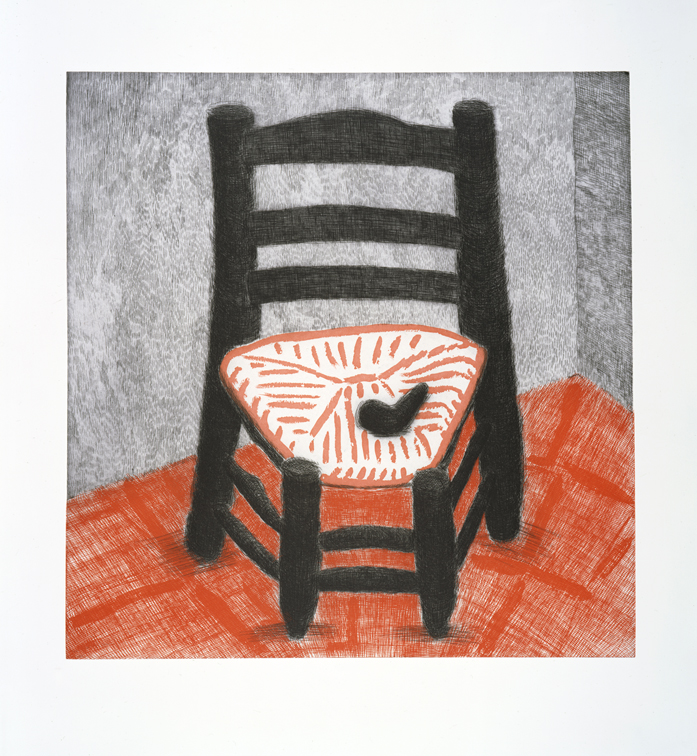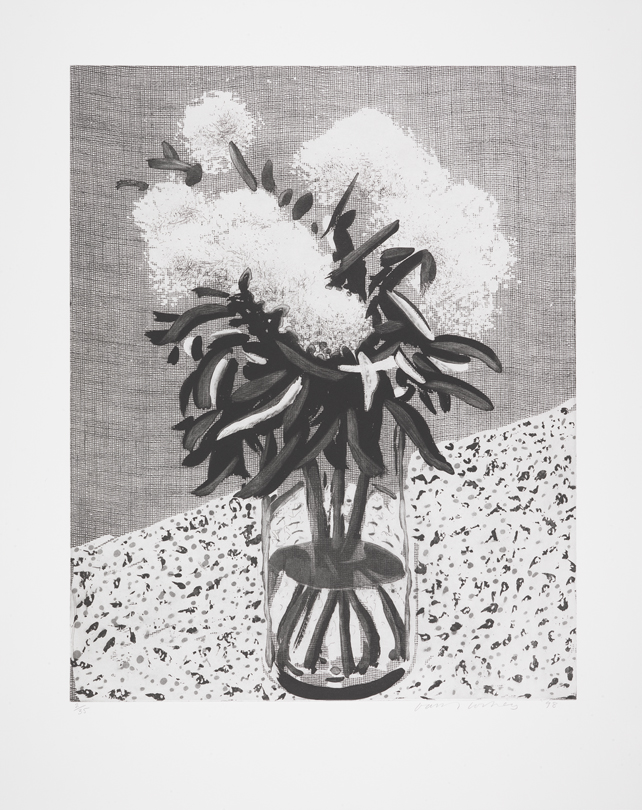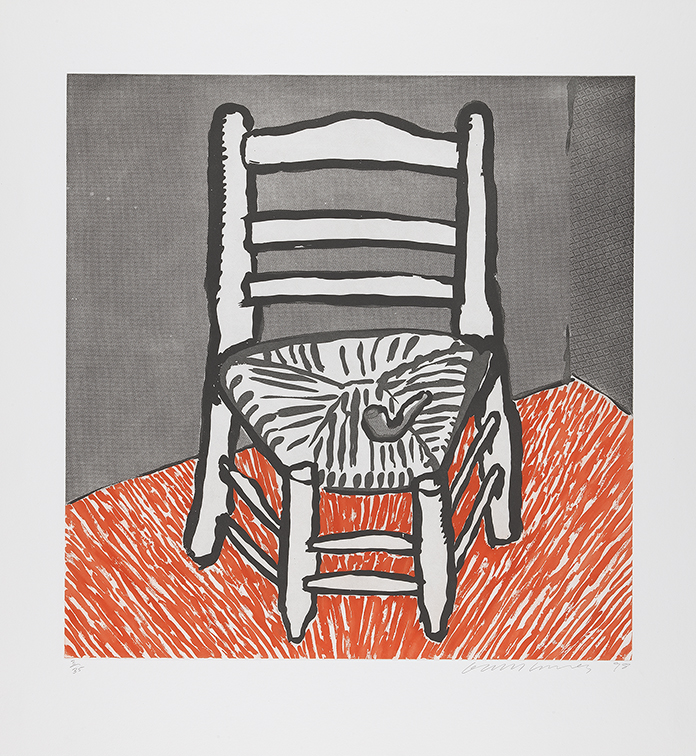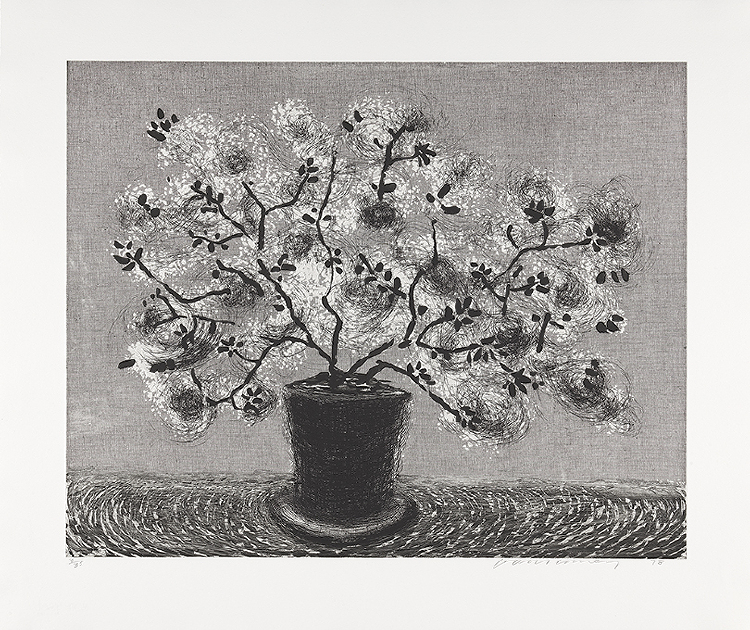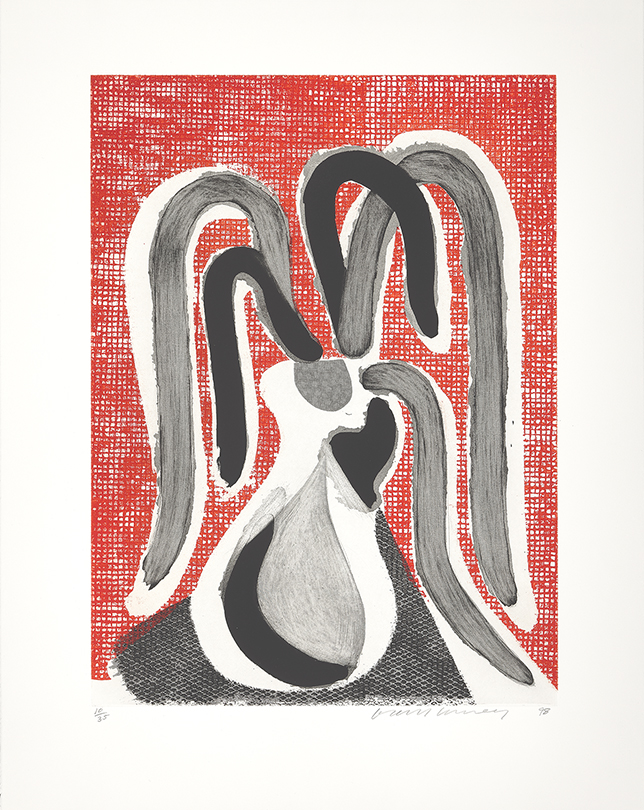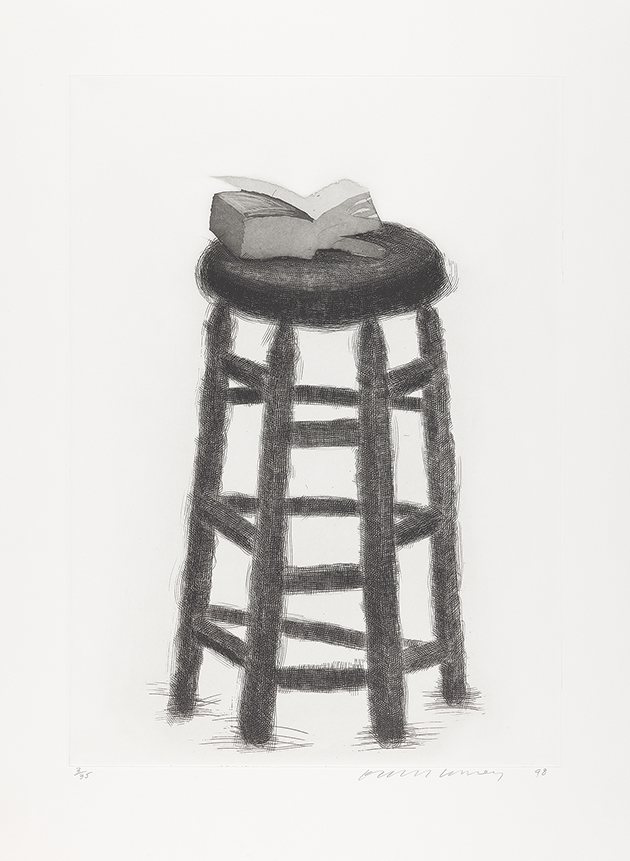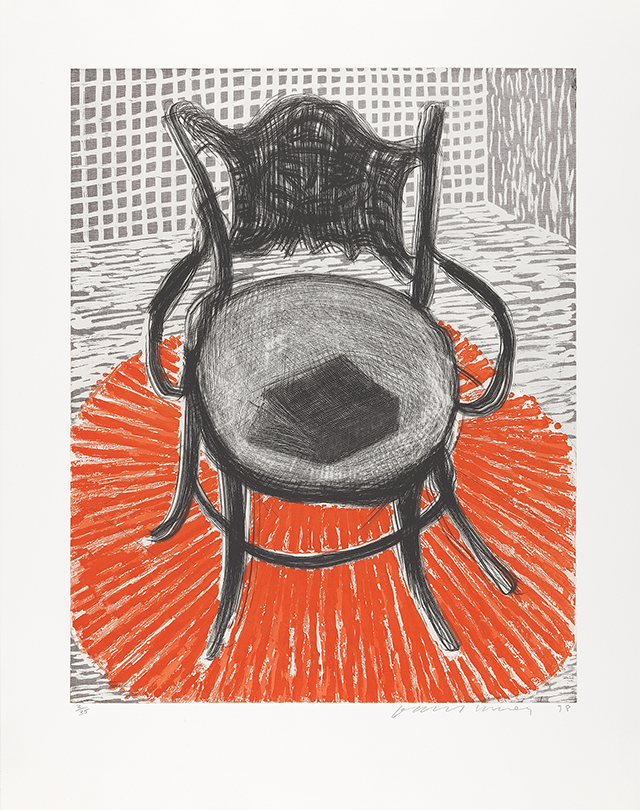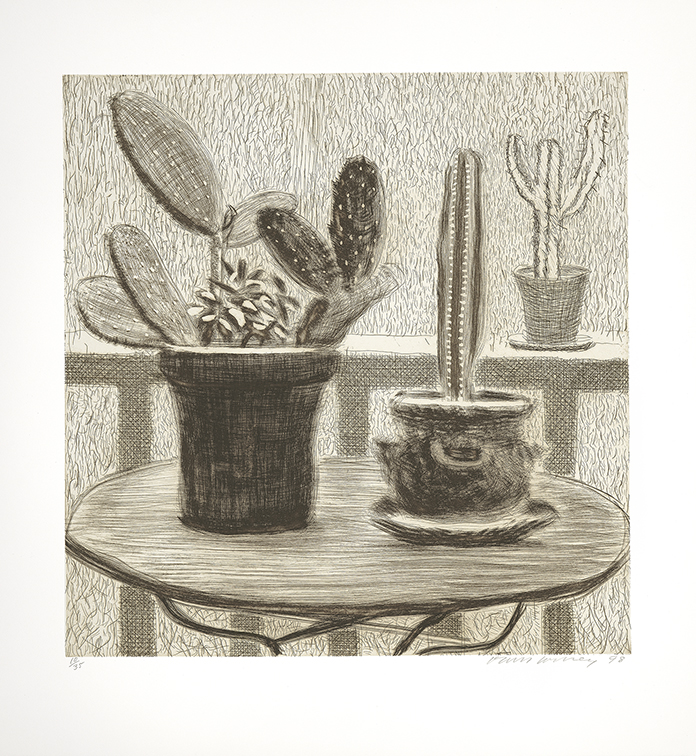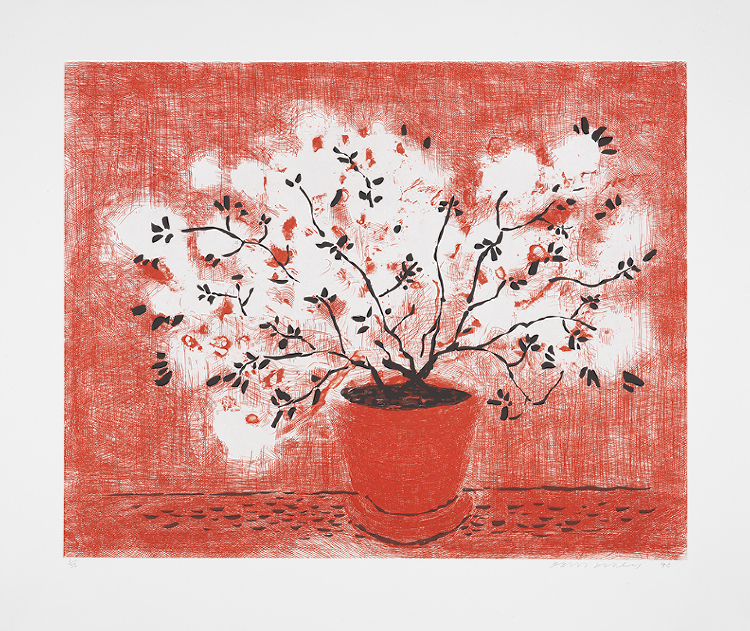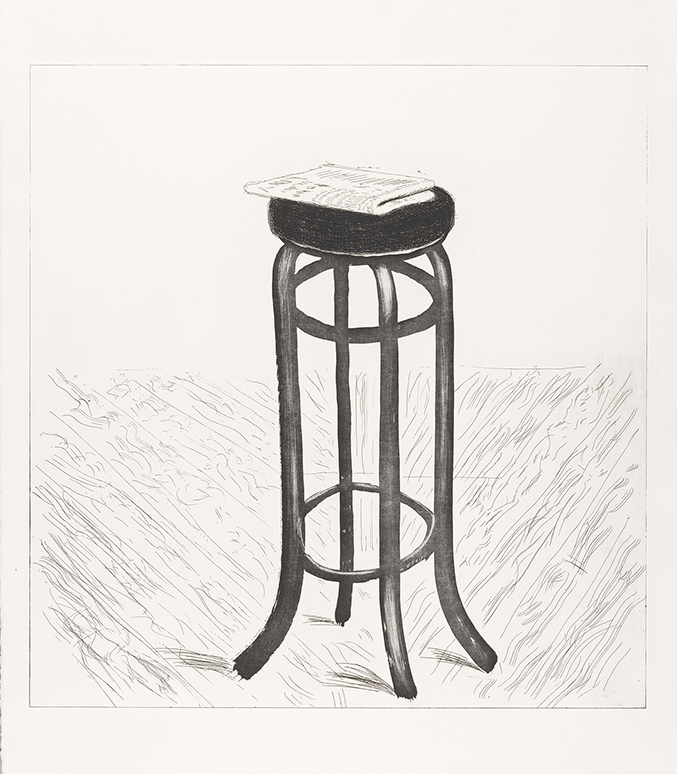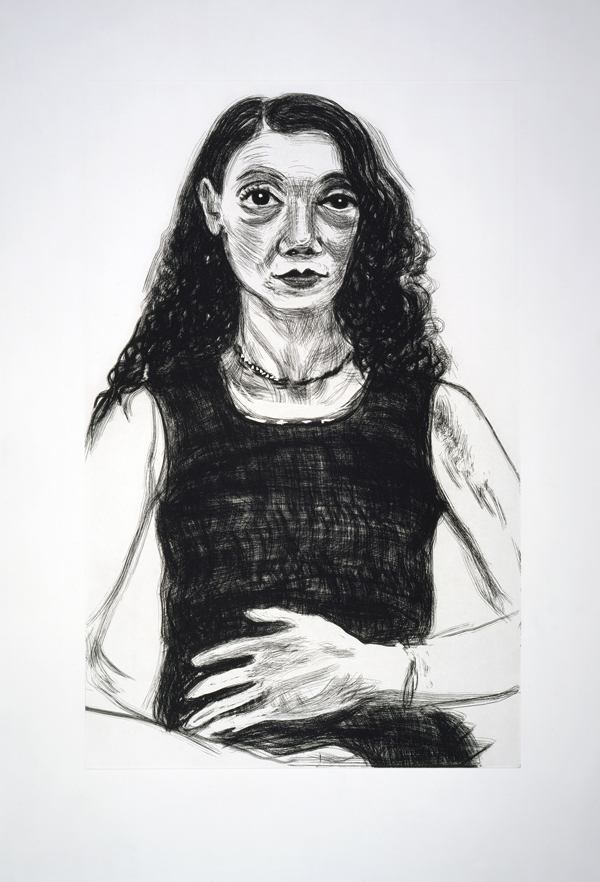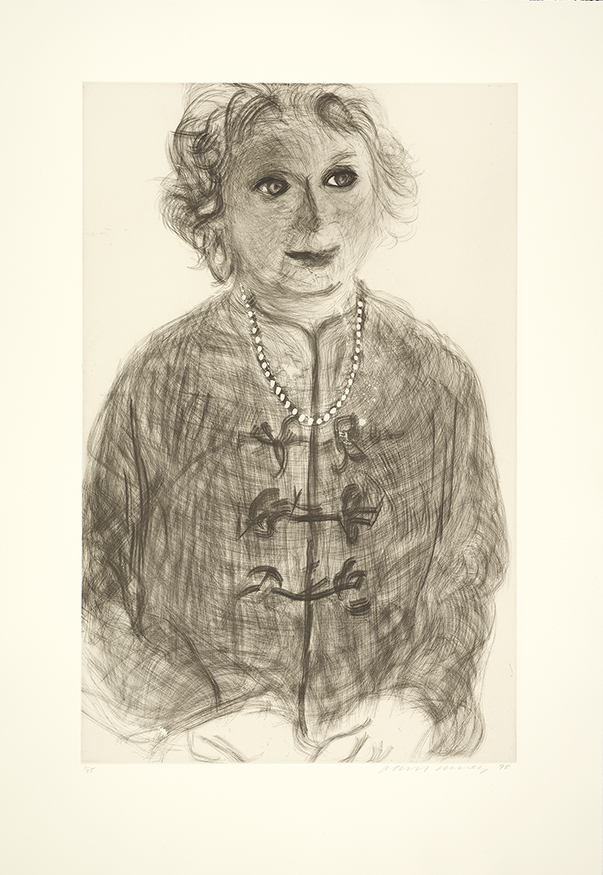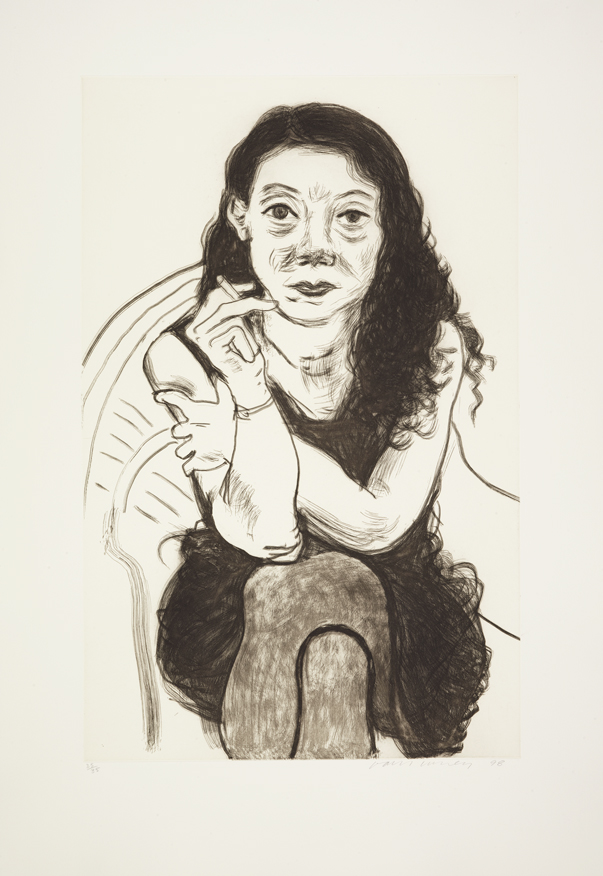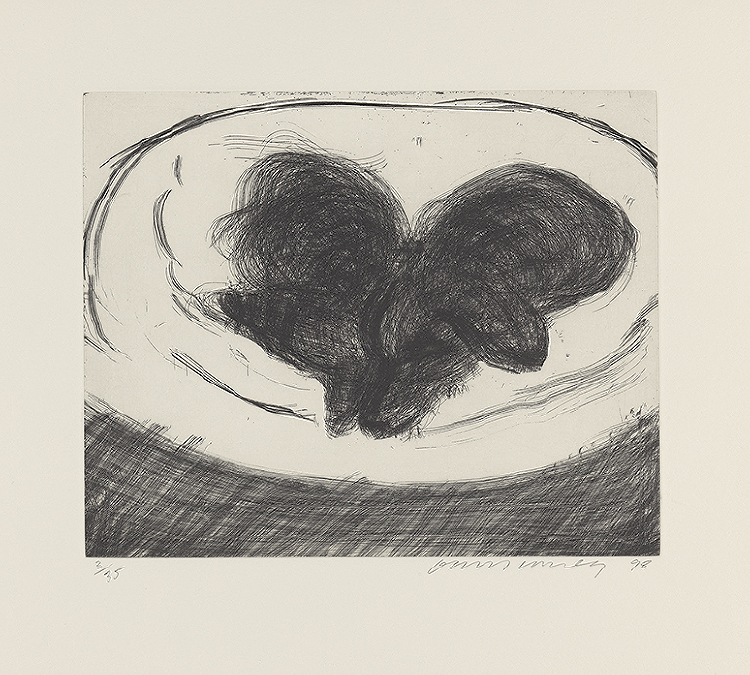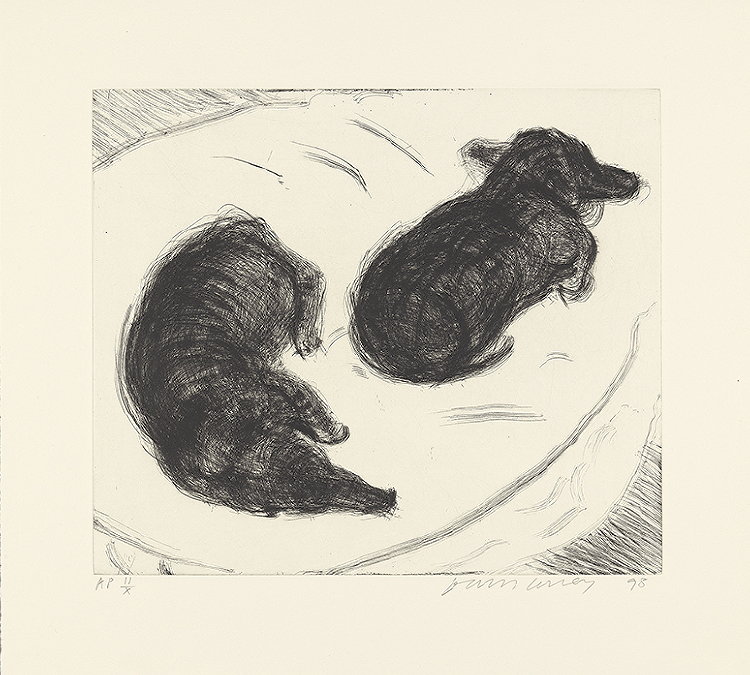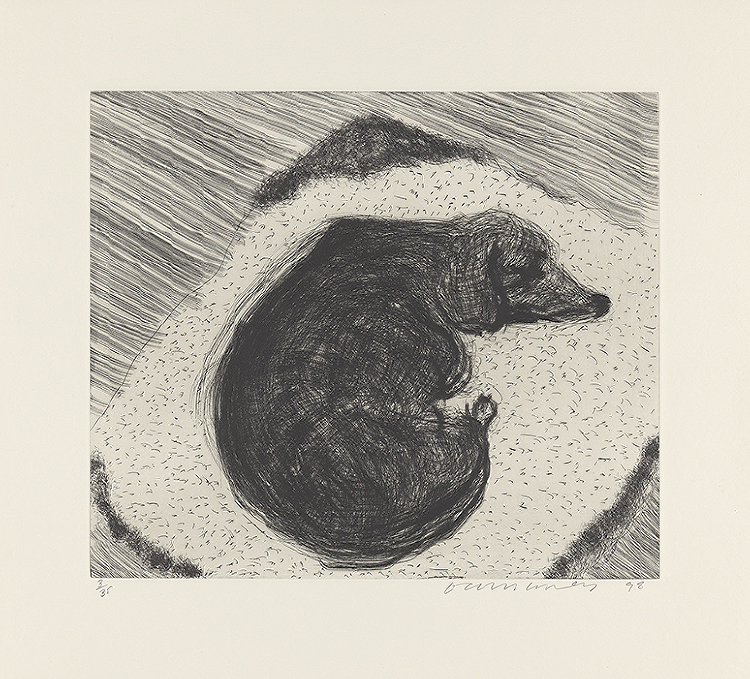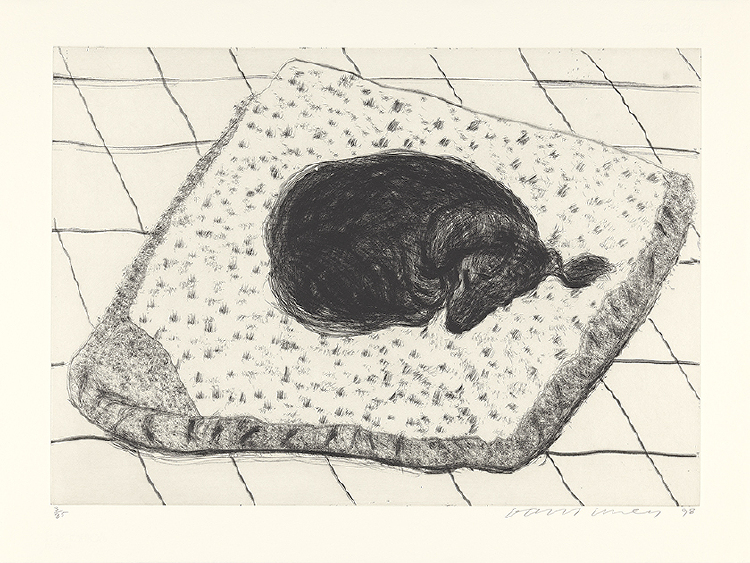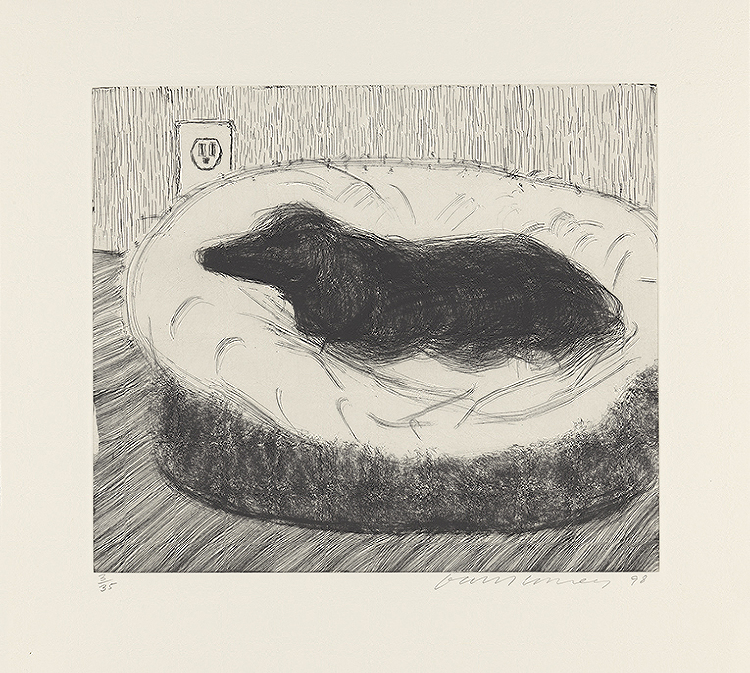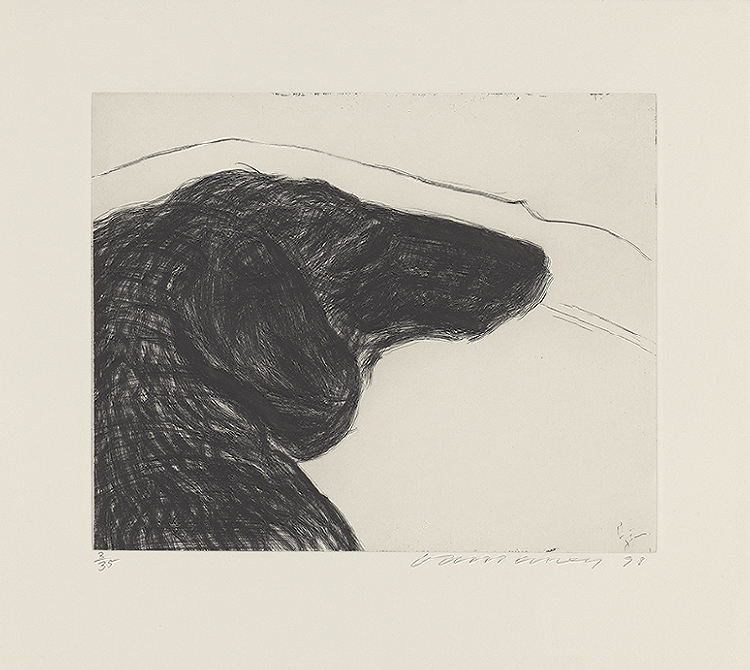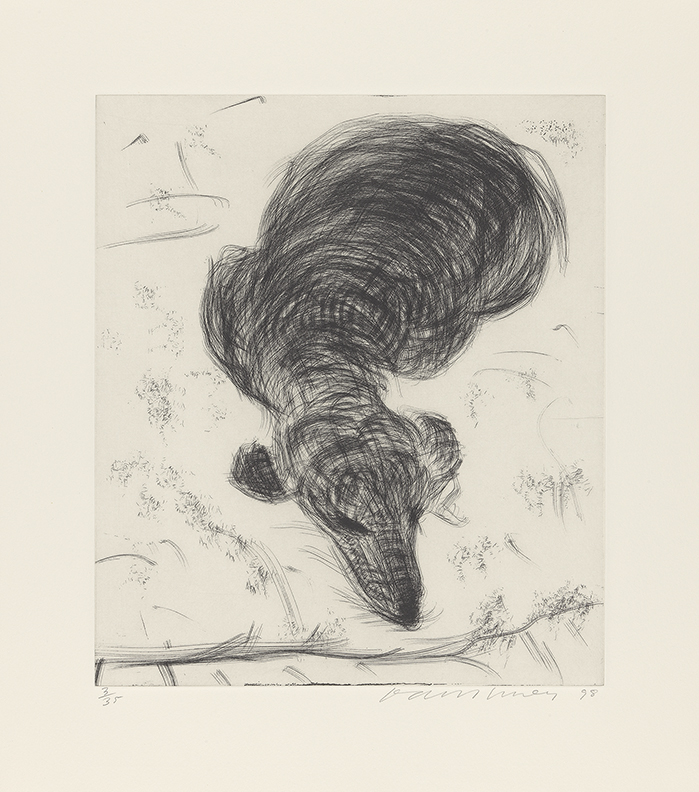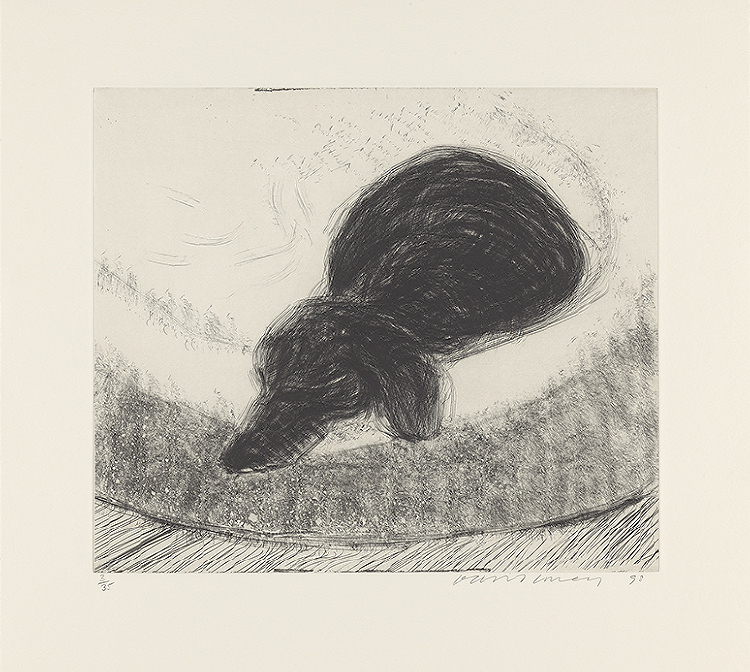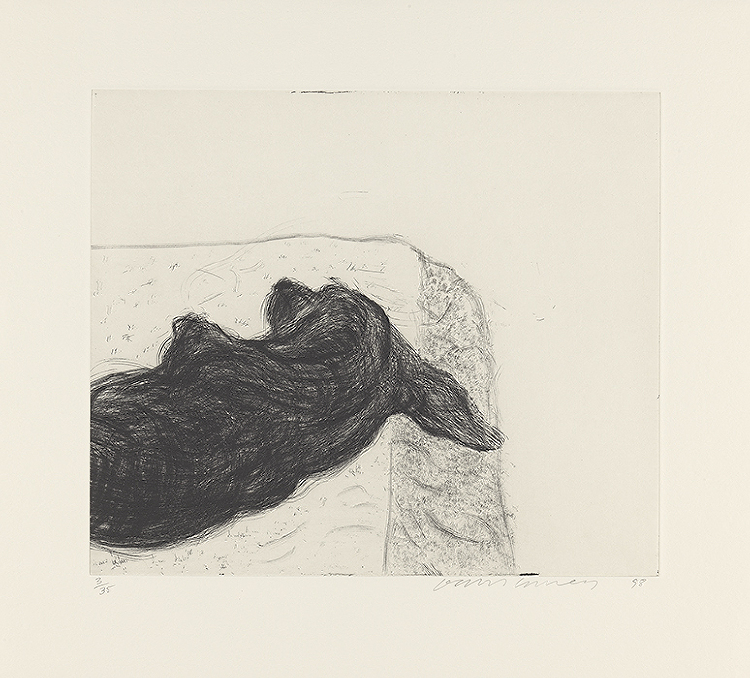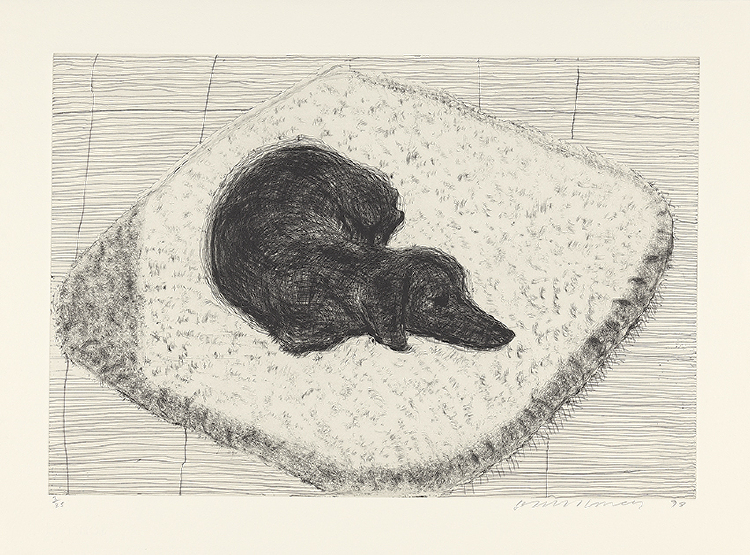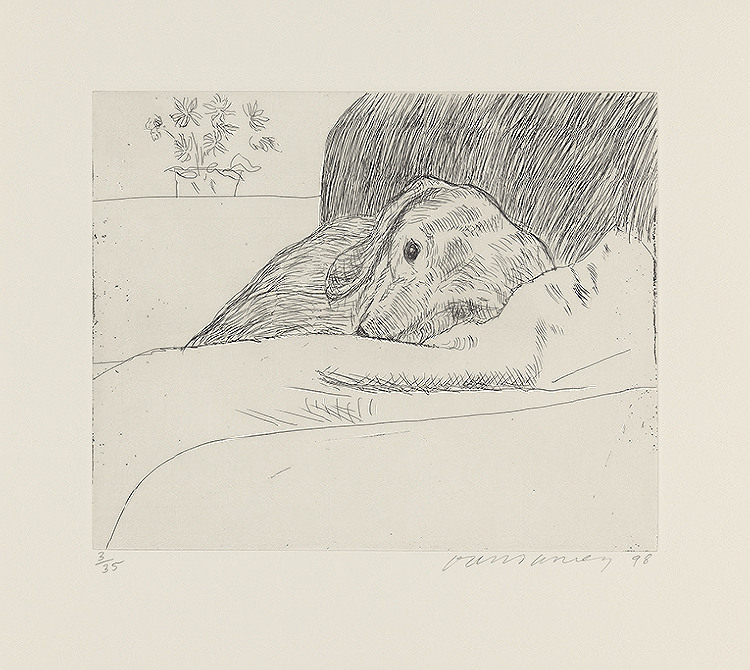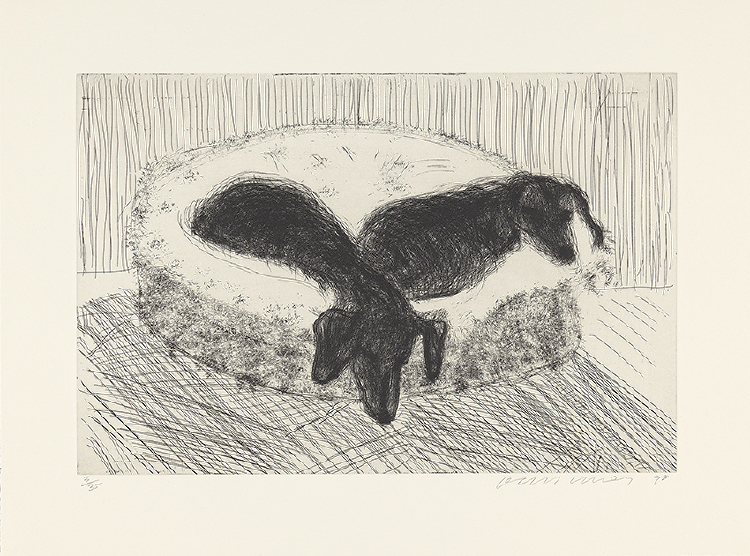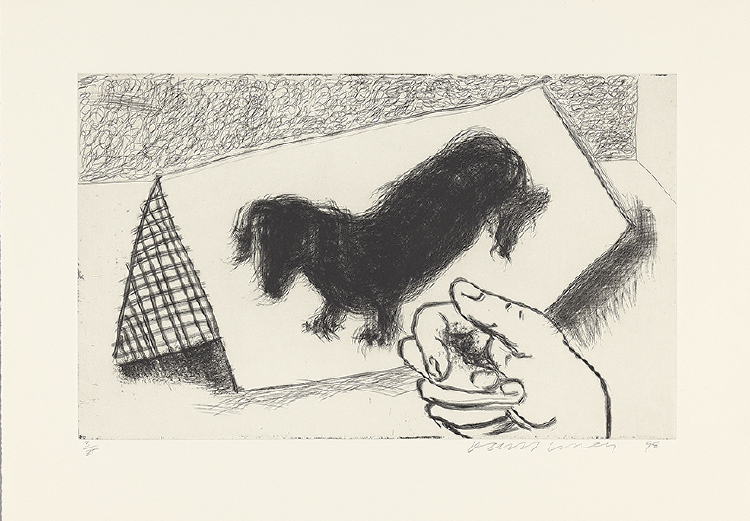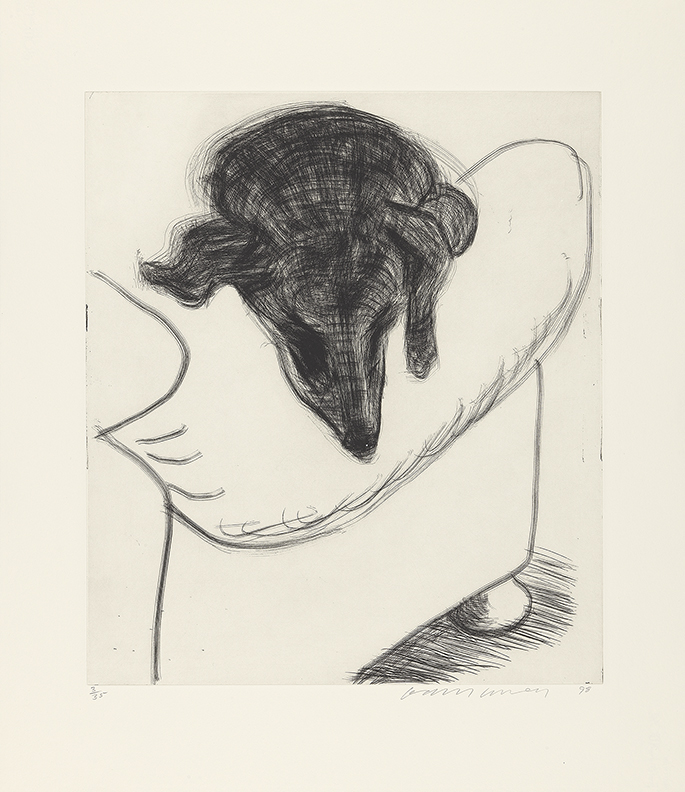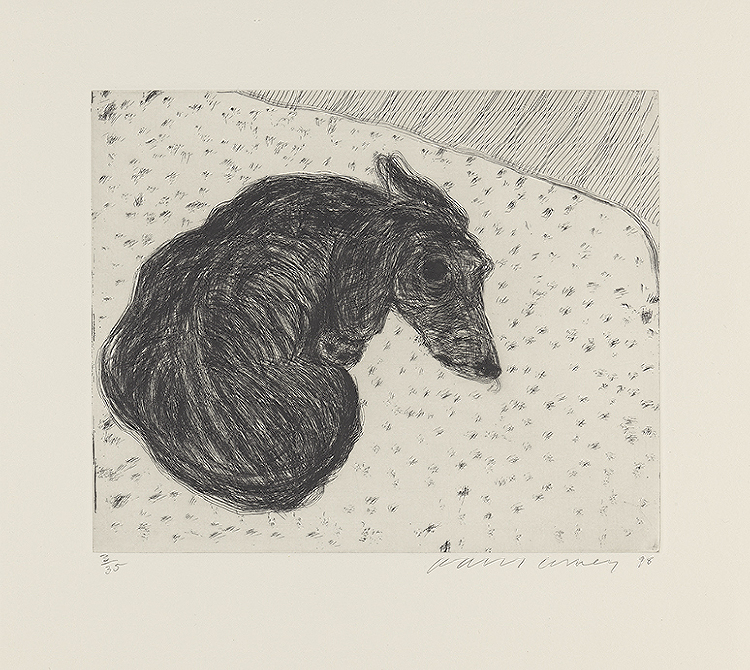
Painting distant landscapes
From memory, Hockney continues to paint Yorkshire upon his return to Los Angeles. He is also working to convey—at epic scale—the spectacular landscape of the Grand Canyon, to which he has been pilgrimaging since the early 80s.
It was January, not the best time to see the Grand Canyon ... so I decided not to go. I didn’t want to be influenced by atmospherics. I wanted to paint it how I remembered it, with real color and pigments, strong pure color put right.

For this vastly ambitious work of 60 canvases assembled in a grid, A Bigger Grand Canyon, he draws inspiration from the nineteenth-century landscape paintings of Thomas Moran (American, 1837–1926) while relying on his recollection of the space in combination with the documentation of his photographic collage The Grand Canyon Looking North II, September 1982. At the National Museum of American Art in Washington, D.C., A Bigger Grand Canyon has its public debut.
A Closer Grand Canyon
In the autumn, Hockney again takes up the motif of the Grand Canyon, but changes tack: he travels to the Grand Canyon to draw it from observation. He works daily for a week at Powell Point on the South Rim to draw numerous studies in oil pastel. Back in his studio, he paints A Closer Grand Canyon on 60 canvases.
The second—which I called A Closer Grand Canyon because you feel closer to it—was done from drawings after sitting there for a week. I took the chair right to the edge to make sure I could sit comfortably for quite a while. I’d be out very early when the sun had just risen. I’d just sit there. Sometimes I even thought that the whole thing could be flat. I’ve had weird thoughts there. It’s unphotographable. No photograph does it justice.
I’d just think about this space .... It is about the only place on earth that really makes you look in every direction. You feel small. And the longer you look the more thrilling it becomes.
Writing about painting
Writing in the Spring 1998 New York issue of Modern Painters, Hockney calls for an embrace of painting, elaborating on how the advent of television and the internet [NESTED]has worsened his skepticism regarding the reliability of photography as witness.
Both the photograph and reality itself are being called into question. We are losing confidence in the camera’s ability to show us what the world looks, and feels, like. All images are artificial in some way ... but what the hand, the eye, and the heart can do—and paint—can never be replaced.
Etchings
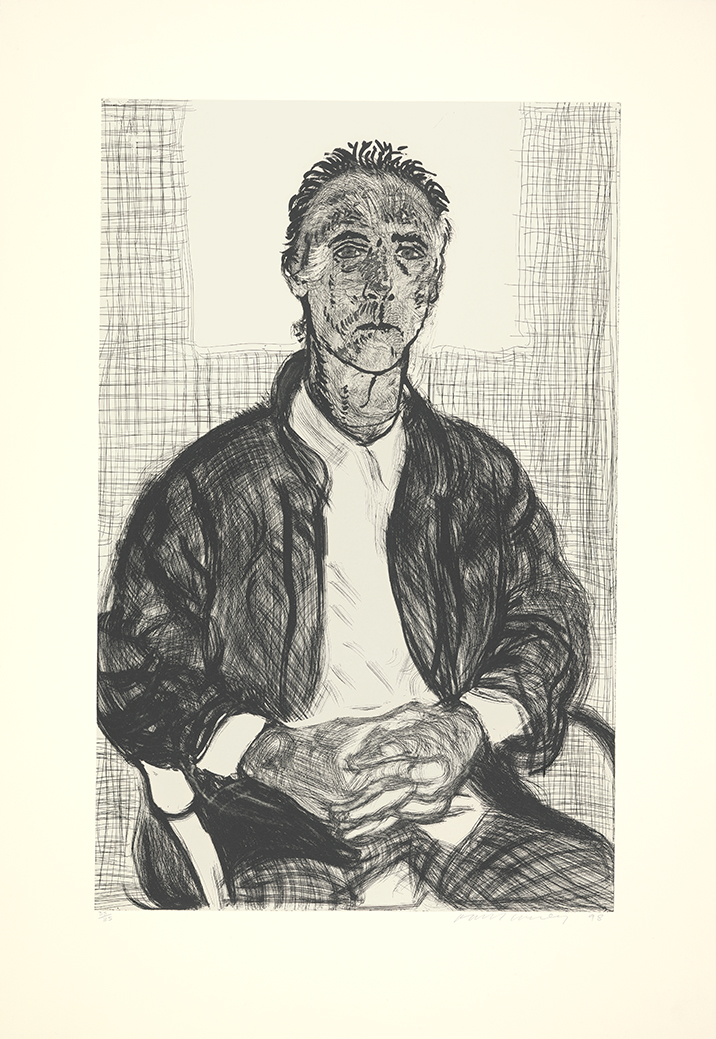
At his Hollywood Hills home, Hockney is delving back into etchings. He resumes collaborating with his old friend Maurice Payne, and they set up a print studio in the house. Payne leaves prepared plates around for Hockney to take up drawing the characters and objects of his domestic life as he likes throughout the day.
Dog Days
Hockney’s paintings and drawings of his dachshunds made over several years are published in book form: David Hockney’s Dog Days.
Exhibitions
Solo
- New Paintings by David Hockney, Museum of Fine Arts, Boston, MA, USA (Apr 24–Aug 23).
- A Bigger Grand Canyon, National Museum of American Art, Washington, D.C., USA (Jun 19–Sep 7).
- Looking at Landscape, Being in Landscape, L.A. Louver, Venice, CA, USA (Sep 15–Oct 24); catalogue.
Group
- Digital Frontiers: Photography's Future At Nash Editions, George Eastman House International Museum of Photography, Rochester, NY, USA (Apr 25–Sep 26), travels to Monterey Museum of Art, La Mirada, CA (Jul 10–Sep 26, 1999); catalogue.
- Modern British Art, Tate Liverpool, Liverpool, UK (May 23, 1998–Apr 1, 1999).
Publications
Publications
- David Hockney: Looking at Landscape / Being in Landscape, L.A. Louver, New York.
- David Hockney’s Dog Days, by David Hockney, London: Thames & Hudson.
